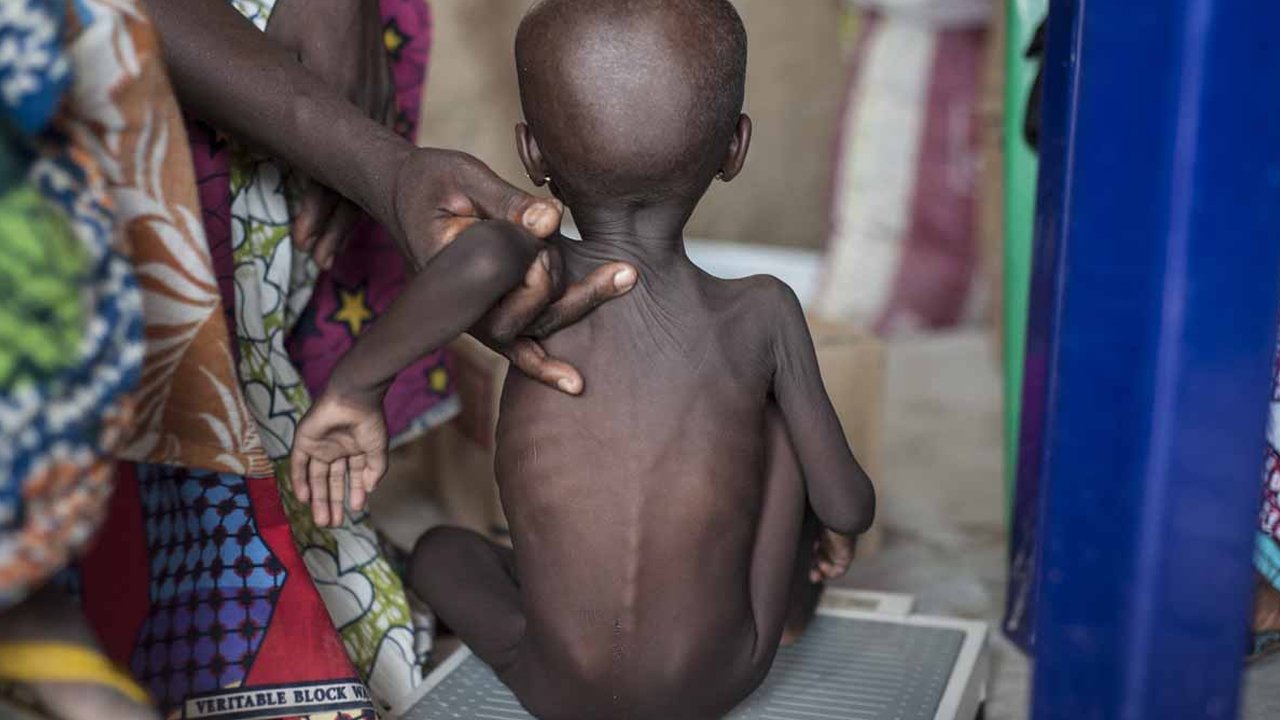Nutrition
Nourishing Ghana Starts with Us: The role of citizens

The success of Ghana’s fight against malnutrition does not rest solely in the hands of the government or donors. It depends on us, the citizens. Nutrition is not just a technical issue. It is a societal one, and every Ghanaian has a role to play in ensuring that no child goes hungry, no mother is left unsupported, and no community is forgotten.
As citizens, we must shift how we see nutrition: not as a private family concern, but as a collective national responsibility. Here’s how we can act:
1. Demand accountability
Every citizen has the right and responsibility to ask how public funds are being used to support nutrition. Are local clinics stocked with supplements? Are school feeding programmes working in your district? Are maternal health services adequately funded? Ask questions. Engage assembly members. Attend town hall meetings. Make your voice count.
2. Speak up, Speak out
Silence has a cost. When we fail to speak out against malnutrition, we normalise it. Use your platform, whether it is WhatsApp group, a radio show, a church gathering, or social media, to raise awareness. Normalise conversations about child feeding, food quality, and maternal health. Silence keeps systems broken. Voices drive change.
3. Support local solutions
Support or join community nutrition initiatives. Volunteer. Share what you know. Help spread accurate information about breastfeeding, healthy diets, and hygiene. If you are a farmer, teacher, trader, or youth leader, your knowledge and effort can make a difference. Change starts in our homes and neighbourhoods.
4. Protect the first 1,000 days
Whether you are a father, grandmother, neighbor, or employer, support pregnant women and caregivers during this crucial period. Encourage antenatal care. Help with child care. Prioritise nutritious foods. The first 1,000 days of a child’s life lay the foundation for everything that follows.
When citizens care, ask questions, take action, and show solidarity, we create the conditions for lasting change. Malnutrition is not inevitable. It is a symptom of neglect, and neglect ends when citizens choose to act.
Feature article by Women, Media and Change under its Nourish Ghana: Advocating for Increased Leadership to Combat Malnutrition Project
Nutrition
Homemade white yam ice cream

Ingredients (serves about 6)
- 2 cups yam (peeled, chopped, and boiled until soft)
- 1 cup evaporated milk (or fresh milk)
- ½ cup condensed milk (for sweetness) – or replace with ½ cup sugar
- 1 teaspoonful of vanilla essence
- ½ teaspoonful of nutmeg (optional)
- A pinch of salt
Method
- Wash, peel yam and chop into cubes.
- Boil in water with a pinch of salt until very soft.
- Drain and let it cool slightly.
- In a blender, add the boiled yam, evaporated milk, condensed milk (or sugar), vanilla essence, and nutmeg.
- Blend until it becomes very smooth and creamy.
- Taste the mixture and adjust sweetness if needed (add a little more sugar or condensed milk).
- Pour the mixture into a clean bowl or container.
- Cover and place in a freezer.
- Every 30–40 minutes, take it out and stir with a fork or whisk to break ice crystals (repeat 3–4 times for creaminess).
- Freeze until firm (about 4–6 hours).
- Serve.
- Scoop into bowls or cones.
- Garnish with groundnut, chocolate syrup, or fruit if you like.
By Sarah Kwakye
Join our WhatsApp Channel now!
https://whatsapp.com/channel/0029VbBElzjInlqHhl1aTU27
Nutrition
Galamsey and Nutrition: Counting the real cost of Ghana’s gold rush

Illegal small-scale mining, or galamsey, has been branded as one of Ghana’s gravest environmental and economic threats. Successive governments have promised action, task forces have been deployed, and billions of cedis lost in revenue have been reported. Yet a deeper crisis is unfolding beneath the surface: a nutrition emergency directly linked to the destruction caused by galamsey.
Across mining belts in the Western, Ashanti, and Eastern regions, rivers that once sustained farming and fishing are contaminated with mercury and cyanide. Farmers say irrigation is impossible; fishermen say their nets return empty. Independent studies confirm that mercury levels in some rivers exceed World Health Organisation guidelines. The result is a sharp reduction in safe food production and an erosion of the very foundation of Ghana’s nutritional security.
The figures are sobering. Nationally, one in five children under five is stunted. Nearly half of women of reproductive age are anaemic. Child wasting remains at emergency levels in some districts. The destruction of fertile land and poisoning of water through galamsey only compound these problems. In some mining-affected districts, local health authorities report higher rates of undernutrition and anaemia than the national average.
Economists estimate that malnutrition already costs Ghana up to 6.4 per cent of its GDP each year in lost productivity, poor educational outcomes, and higher health expenditures. With agriculture compromised by galamsey, the bill is rising. Food inflation is being felt in urban markets, while rural households in mining areas are forced to survive on monotonous diets that lack the nutrients needed for growth and development.
The accountability gap is glaring. Ghana committed at the 2025 Nutrition for Growth Summit to invest $6 million annually in nutrition. Yet the same state resources continue to be drained by environmental damage, water treatment costs, and agricultural losses linked to galamsey. While authorities launch operations against illegal miners, enforcement remains inconsistent and politically fraught, raising questions about who benefits from the destruction.
Experts warn that without decisive action, galamsey will derail Ghana’s progress toward the Sustainable Development Goals, particularly those on zero hunger, good health, and climate action. “Every river poisoned is a food system destroyed, and Ghana cannot achieve food security while watching our land vanish,” says Dr Charity Binka, Executive Director, WOMEC.
The evidence is clear: galamsey is not just an environmental crime. It is a public health emergency and a development crisis. Addressing it requires more than rhetoric; it requires enforcement, transparency, and the political will to confront vested interests. Unless this happens, Ghana risks trading its children’s nutrition and future productivity for short-term gains in gold.
We therefore demand the activation of permanent inter-agency galamsey response teams with prosecutorial authority independent of political interference and the establishment of a Galamsey Restoration Fund financed through penalties for river remediation and emergency nutrition interventions. We also call for the publication of quarterly malnutrition data disaggregated by mining-affected districts.
We join the call for amendments to the Minerals and Mining Act with a focus on mandating nutrition impact assessments with automatic permit suspension for violations, the resourcing of community water monitoring committees with testing kits, and the invitation of UN Special Rapporteurs to assess affected regions and provide independent recommendations.
We urge every citizen to demand that their MP publicly declare their enforcement plan and support stronger penalties, because the evidence is overwhelming and the solutions are known. Ghana’s rivers, farmlands, and children cannot wait for another empty promise.
Feature Article by Women, Media and Change under its Nourish Ghana: Advocating for Increased Leadership to Combat Malnutrition Project
Join our WhatsApp Channel now!
https://whatsapp.com/channel/0029VbBElzjInlqHhl1aTU27







